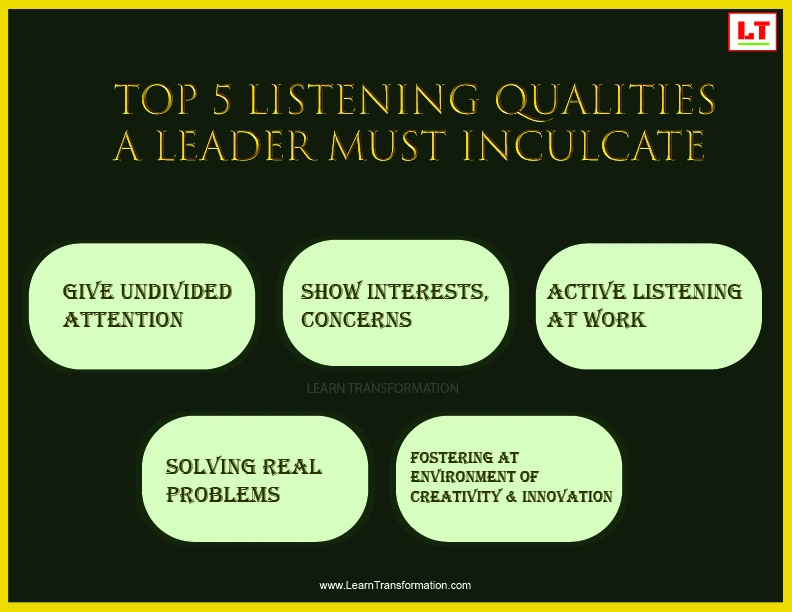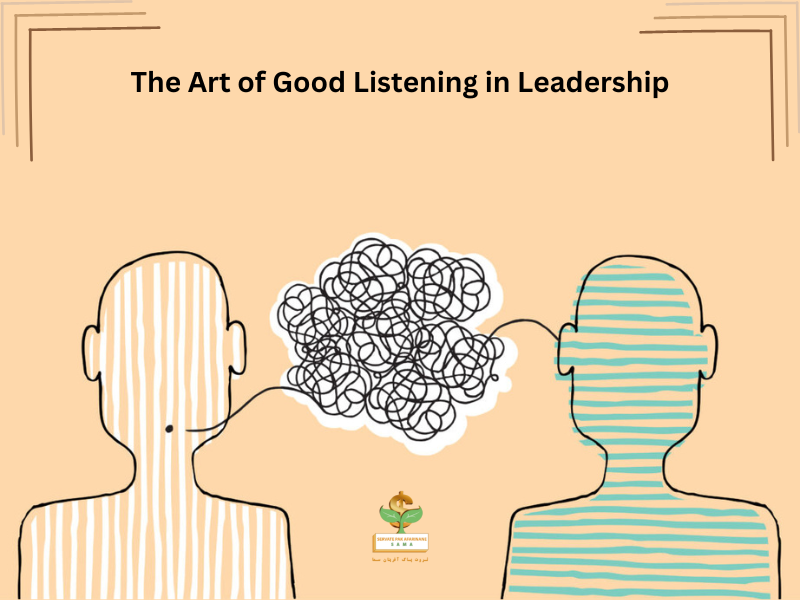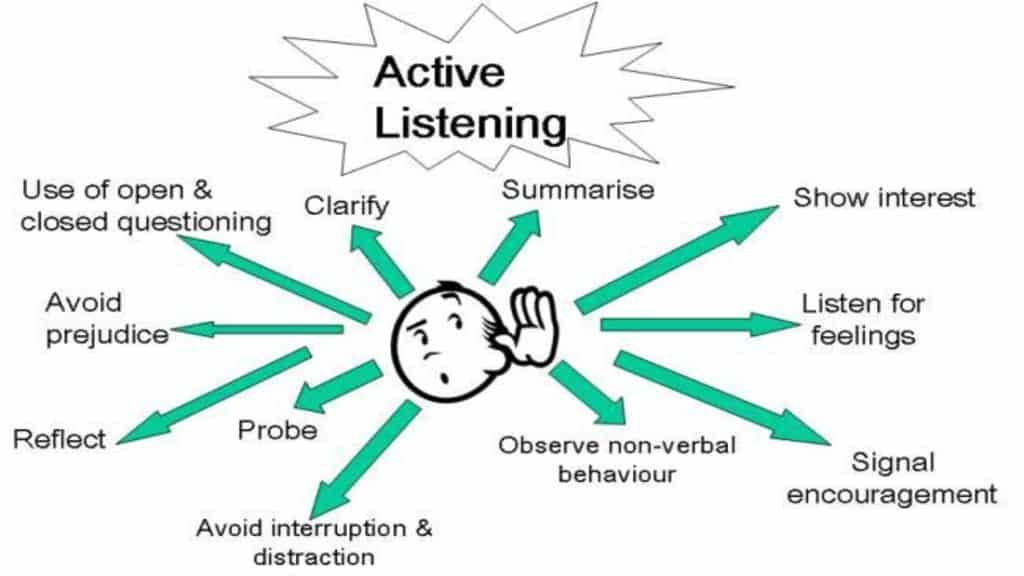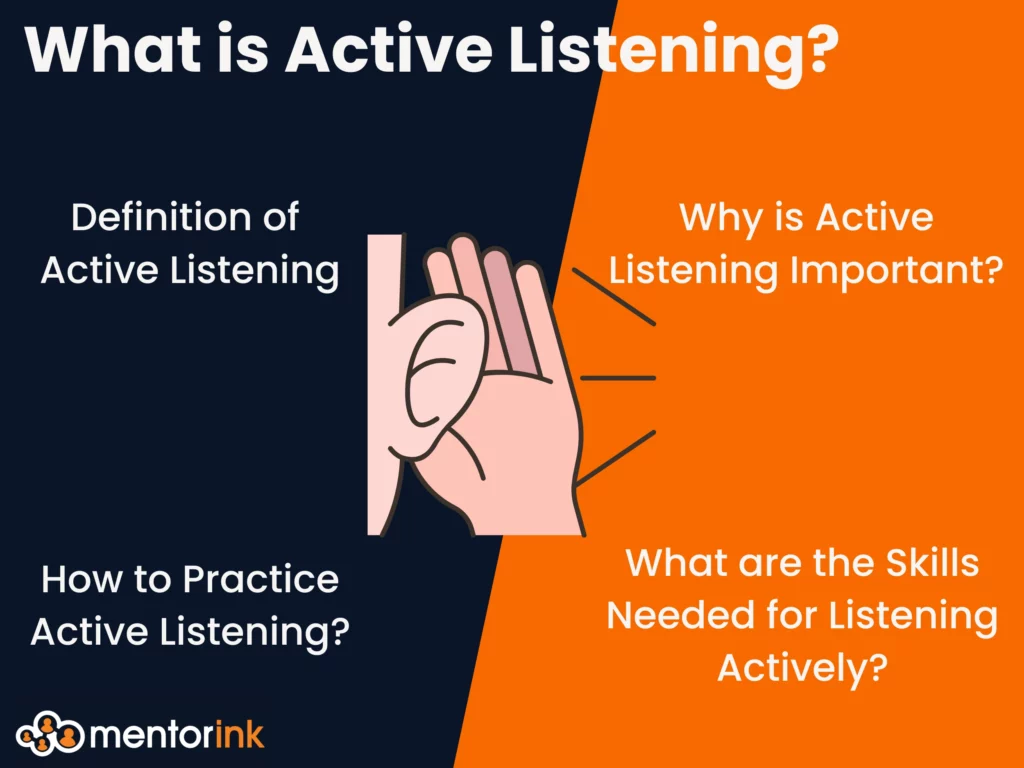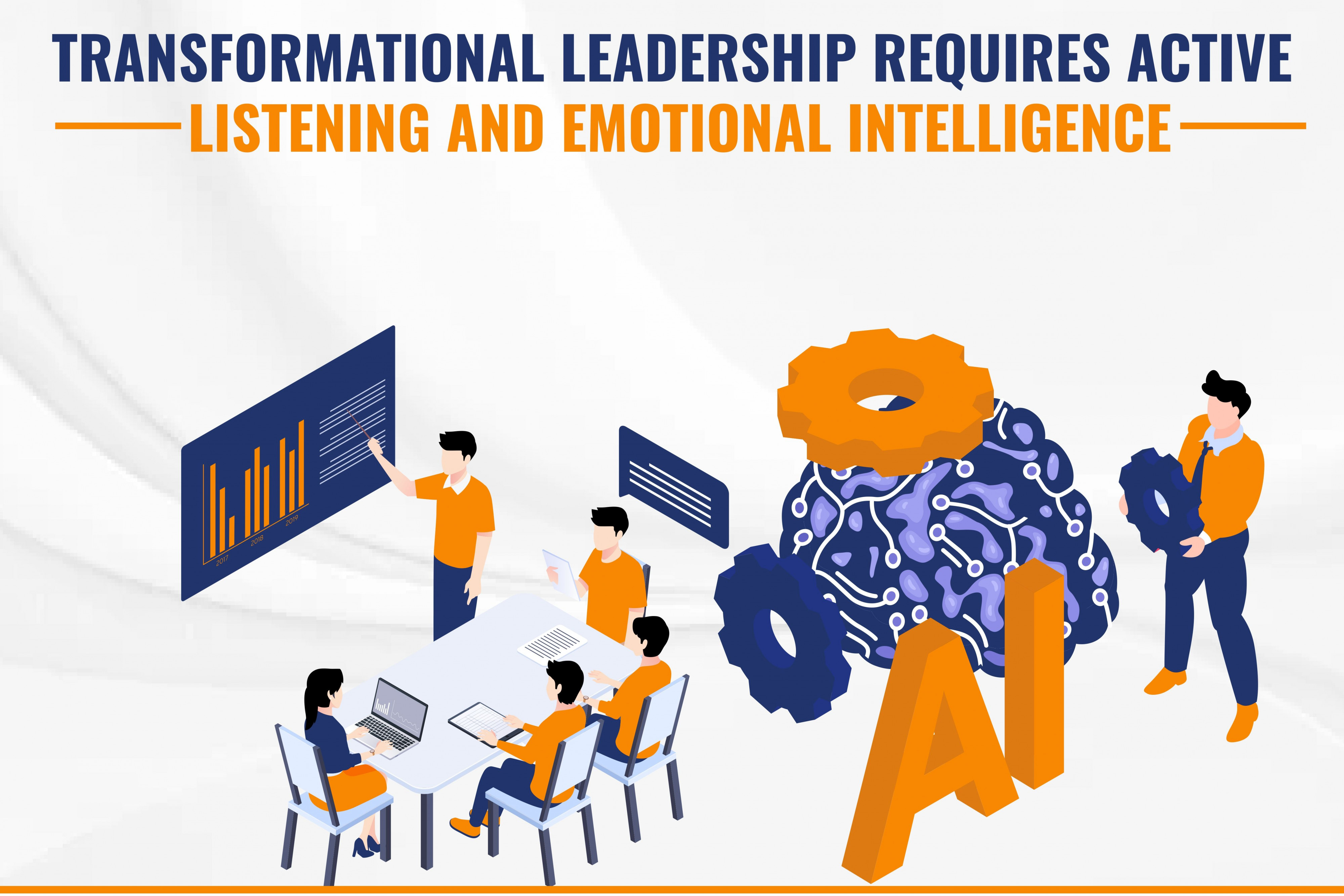Importance Of Active Listening In Leadership

In today's complex and rapidly evolving business landscape, the ability to listen effectively is emerging as a critical skill for successful leadership. Beyond simply hearing words, active listening involves understanding the speaker's perspective, emotions, and underlying message. This practice is not merely a sign of courtesy; it is a powerful tool that fosters trust, drives innovation, and improves overall organizational performance.
The core of active listening lies in its ability to build stronger relationships. When leaders genuinely listen to their team members, they create a safe and supportive environment where individuals feel valued and respected. This sense of psychological safety is crucial for fostering open communication and collaboration, leading to increased employee engagement and productivity, according to a recent study by Harvard Business Review.
The Components of Active Listening
Active listening is a multifaceted skill encompassing several key elements. These include paying close attention, showing empathy, asking clarifying questions, and providing feedback.
Paying Attention and Showing Empathy
Paying attention means focusing fully on the speaker, both verbally and nonverbally. It involves minimizing distractions, maintaining eye contact, and using appropriate body language to signal engagement.
Showing empathy requires understanding and acknowledging the speaker's emotions. This can be achieved through verbal cues, such as summarizing the speaker's feelings or expressing understanding. As stated by organizational psychologist Adam Grant, "Empathy is not just about understanding; it's about caring."
Asking Clarifying Questions and Providing Feedback
Asking clarifying questions demonstrates a genuine interest in understanding the speaker's message. This also helps to avoid misunderstandings and ensures that the listener grasps the full context of the information being shared.
Providing feedback involves summarizing the speaker's message in your own words to confirm understanding. This also gives the speaker an opportunity to correct any misinterpretations and further clarify their points.
The Impact on Organizational Performance
The benefits of active listening extend far beyond improved interpersonal relationships. Organizations with leaders who prioritize active listening often experience a range of positive outcomes.
Improved communication is a direct result of active listening. When leaders actively listen, they are better equipped to understand the needs and concerns of their team members, leading to more effective communication strategies and reduced conflicts, according to the Society for Human Resource Management (SHRM).
Increased innovation is another significant benefit. Active listening creates a culture where diverse perspectives are valued and encouraged. This can spark new ideas and drive innovation by allowing leaders to tap into the collective intelligence of their teams.
Enhanced decision-making is also facilitated by active listening. By carefully considering the input of all stakeholders, leaders can make more informed and well-rounded decisions. This also reduces the risk of overlooking critical information and potential pitfalls.
Overcoming Barriers to Active Listening
Despite its importance, active listening can be challenging to practice consistently. Several factors can hinder effective listening, including distractions, biases, and preconceived notions.
To overcome these barriers, leaders must cultivate self-awareness and practice mindfulness. This involves recognizing their own biases and actively challenging them. It also requires creating a dedicated space for listening, free from distractions and interruptions.
Furthermore, leaders can benefit from seeking feedback from their team members on their listening skills. This can provide valuable insights into their strengths and weaknesses, allowing them to continuously improve their approach.
In conclusion, active listening is not merely a soft skill; it is a critical competency for effective leadership in the modern era. By prioritizing active listening, leaders can build stronger relationships, foster innovation, improve communication, and enhance decision-making, ultimately leading to greater organizational success. The investment in developing active listening skills is an investment in the future of leadership.


